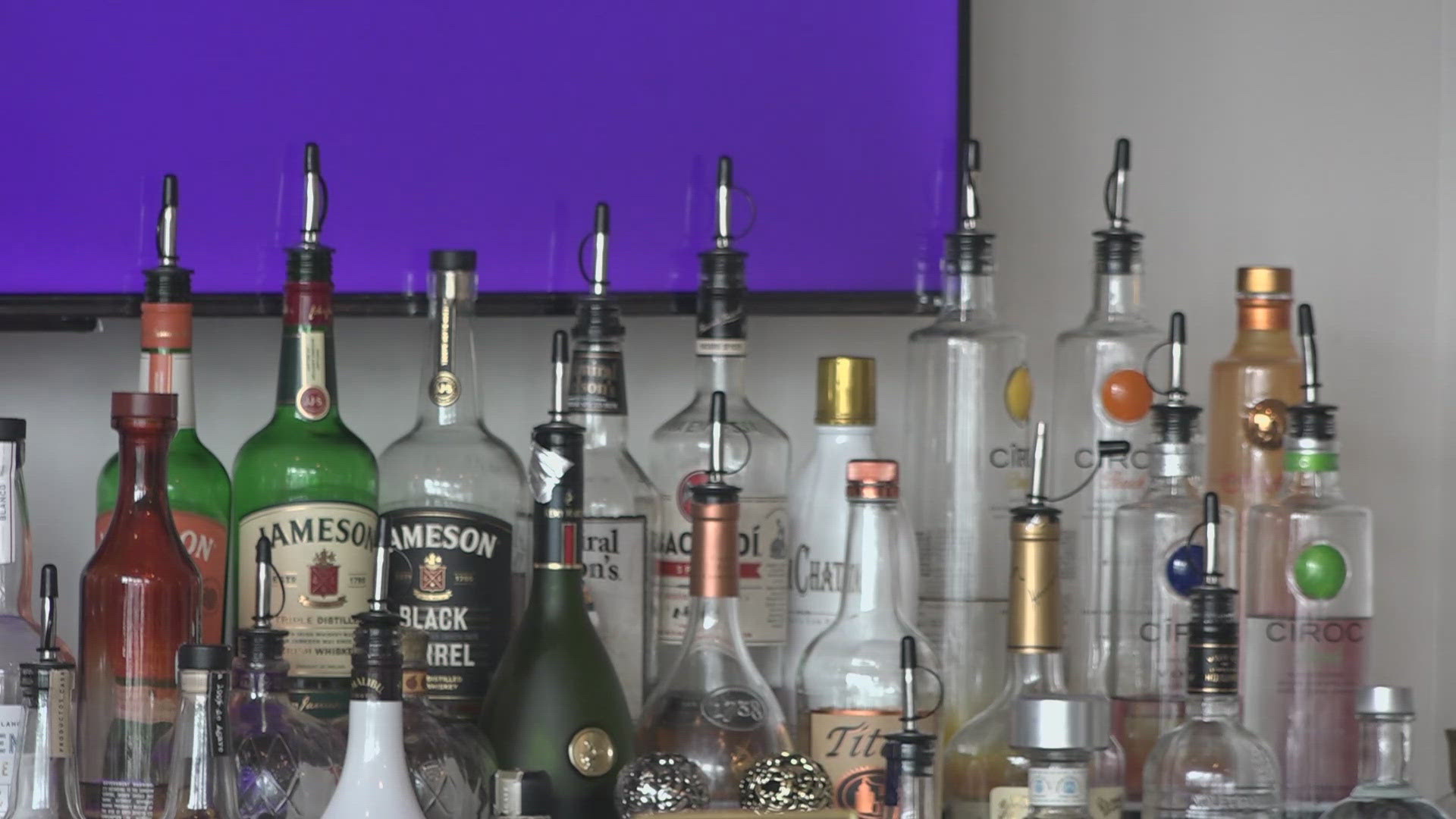ST. LOUIS — A new liquor license process in St. Louis will allow new businesses to open their doors with temporary liquor licenses and "prove" that they should be allowed to sell alcohol on a permanent basis.
The city's new program streamlines the process and allows new businesses to open with a temporary liquor license rather than waiting for the process to play out.
“Now, these businesses can open their doors with a temporary license and prove to their community that they deserve a permanent one," Mayor Tishaura Jones said in a press release. "That’s good news for small businesses, for job creation, and for building a more vibrant city.”
The change comes about six months after Jones signed Board Bill 60 into law. That bill, which was sponsored by Alderman Bret Narayan, allowed for the changes to the process for restaurants, bars, microbreweries, brewpubs and taproom breweries.
Business owners had expressed frustration with the old process, which required them to gather signatures and wait for their permanent license before selling alcohol. Instead, restaurants and bars would go through public city hearings and approval from the excise commissioner, altogether avoiding the signature process.
Under the new process, applicants in good standing may renew their 90-day license once and will be eligible for a full license after six months when their temporary license expires, the press release said.
The new process will still keep public input, even without the signature process. The initial temporary license and the full license require a public hearing before the Excise Commissioner.
Residents near the businesses will get a mail notification for upcoming hearings, and signs will be posted in the area.
To begin the liquor license application process, visit this web page.
A step-by-step explanation of the process follows:
- An applicant submits their application online.
- The application submission is automatically noted in the City’s open data.
- The applicant comes to the Excise Division office to pay the application fee and postage.
- While in the office to pay fees, the applicant receives the placard from the Excise Division. The applicant receives notification cards and addresses the notification cards on site. The applicant returns these cards to the Excise Division. The Excise Division asks all applicants if they are going to use an agent for the hearing process. If so, the applicant completes the authorization form while in the office. The Excise Division reminds the applicant that notifications will come to them via email and they can check the status of their application online.
- The applicant posts a placard in front of their establishment to notify the neighborhood of their intention to seek a liquor license and the applicant uploads the photo to their application.
- Once the Excise Division sees that a placard posting has been added to an application, the Excise Division schedules the hearing for at least 30 days from when the placard was posted. Please note that a hearing will not be scheduled if a confirmation photo is not uploaded to the application by the applicant of the posted placard. The Excise Division notifies both the applicant and stakeholders regarding the hearing date. The Excise Division informs the applicant of any missing documents while reviewing the application. The Excise Division will send a notification card to all residents within 350 feet of the proposed establishment at least 10 days prior to the hearing date.
- The Excise Division will verify with the Collector of Revenue’s Office that no taxes are due.
- The Excise Division will hold a hearing. The applicant (or their agent) will attend a public hearing on their license.
- At the hearing, the applicant will learn if they are approved. If approved, the applicant will take their materials to the License Collector’s Office to pay for their initial 90-day, license.
- The Excise Division will determine if the applicant is approved for renewal. The Excise Division will notify the License Collector’s Office that the applicant is cleared for one renewal at least 14 days prior to the expiration of the original license. This renewal will also last 90 days. The applicant will be required to pick up their renewed license at the License Collector’s Office and pay.
- The Excise Division will schedule the applicant for a final determination hearing and notify both the applicant and stakeholders. The applicant or their agent will attend a final determination hearing, a second public hearing, to evaluate if they should receive a full license. At this hearing, the applicant must present evidence that their food sales meet the appropriate threshold.
- If the applicant is successful, the applicant will take the final determination notice from the Excise Division to the License Collector’s Office and pay for their annual license.

